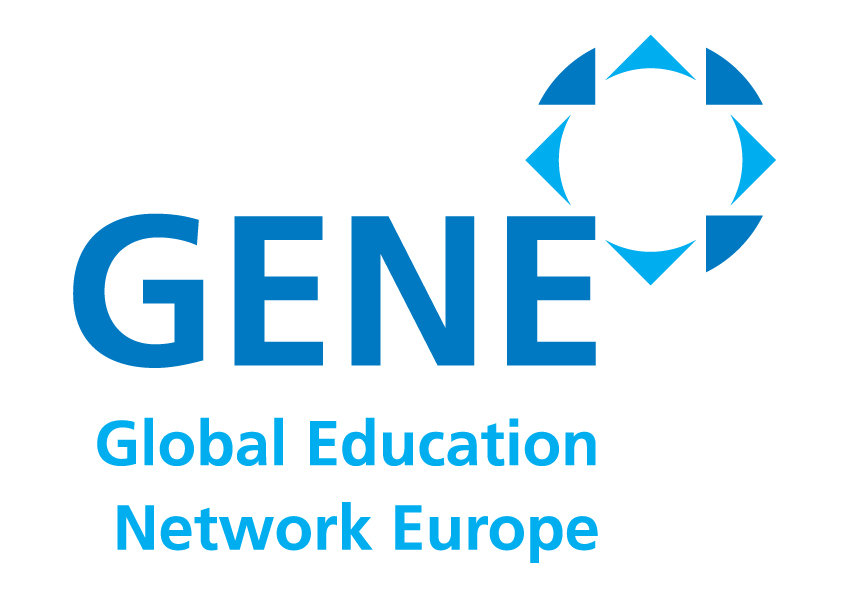GENE is the network of Ministries and Agencies with national responsibility for Global Education in European countries. GENE brings together Ministries, Agencies and other bodies that develop national policy and provide funding for Global Education in European countries. Staring in 2001 with 6 national members, GENE has expanded to include over 60 Ministries and Agencies (of Foreign Affairs, Education, Development Cooperation, etc.) working with also the European Commission as an observer, and in close cooperation with the OECD, UNESCO and other international organisations.
GENE works to increase and improve Global Education in Europe through networking of policymakers, peer review and policy learning, coordination of policy perspectives, policy research and work with international partners.
In the field of policy research GENE compiles the annual State of Global Education in Europe report. GENE works in partnership with a number of European universities active in Global Education, through the ANGEL network. GENE also commissions policy research based on issues identified by policymakers.
In late 2020, in partnership with EERA – the European Educational Research Association – a new initiative is being launched to support educational researchers to pursue policy-focused research in issues of Global Education that are relevant to policymakers.
What does GENE mean by Global Education?
GENE uses the term Global Education derived from the Maastricht declaration, and known as the Maastricht definition.
“Global Education is education that opens people’s eyes and minds to the realities of the world, and awakens them to bring about a world of greater justice, equity and human rights for all.
In essence Global Education is education that includes a social justice, human rights and sustainability focus, a local/global perspective or frame of analysis, and uses participatory, inclusive pedagogical processes that are in keeping with the focus and perspective.
The challenge for policymakers and researchers alike, in the 1990s as now, is that these types of education have grown up from differing sources and inspirations nationally, and so a plethora of competing terms (and acronyms), whether it be ESD or GCE or HRE or Dev Ed. GENE, while respecting and celebrating differing national and international traditions, has always used the umbrella term of Global Education to cut through the silo-isation and bring together differing strands of similar educational practices and policies. The Maastricht definition goes on to capture this umbrella function, using concepts abounding at the time:
Global Education is understood to encompass Development Education, Human Rights Education, Education for Sustainability, Education for Peace and Conflict Prevention and Intercultural Education; being the global dimensions of Education for Citizenship.”
- Definition of Global Education taken from the Maastricht Declaration on Global Education in Europe (2002).
For more on issues of definition and conception see GENE policy-briefing-Concepts-Definitions.pdf
How has GENE identified policy research issues of importance to Global Education policymakers?
GENE facilitates Multilateral Roundtables of policymakers in the field of Global Education from relevant Ministries and Agencies twice a year. Through voluntary national reports, policymakers identify key issues of concern at national level. While these reports are confidential to the GENE Roundtable, the issues arising, analysed further by the GENE secretariat, are anonymised, and form the basis for the annual State of Global Education in Europe report. These reports, along with information gleaned from the European Peer Review process, and the recently published Multilingual Digest on Global Education Research, form the basis for the list of areas of policy research that GENE wishes to encourage.
GENE's Key Issues of Policy Research 2020/2021
- The theoretical basis of Global Education – philosophical, anthropological, epistemological, sociological, ethical, pedagogical or other philosophy of education perspectives on Global Education
- The history of Global Education (local, organisational, national, European, global)
- Issues of Global Education policy, including analysis of existing organisational, local, regional, national, European or global/UN policies or strategies.
- Global Education and policy learning, including inter-ministerial cooperation.
- Issues of evaluation - models of evaluation of Global Education, types of evidence, analysis of existing evaluation mechanisms, quality criteria, critique of existing paradigms, etc.
- Comparative studies in Global Education.
- Funding in Global Education.
- Global Education: current contexts – studies in the relationship between Global Education and countering right-wing extremism, violent extremism, “post-truth” etc.
- Global Education mapping of existing terrain and forecasting of potential opportunities – sectors, countries, particular curricula, curricular reform processes, etc.
- Global Education integration in national curricula – individual or comparative country approaches.
- Mainstreaming Global Education in initial teacher education – individual or comparative institution or country approaches.
- Global Education and digitalisation
- Global Education and particular levels and sectors of Formal Education: including Teacher Education, School leadership, Student Voice, etc.
- Global Education and Youth - including non-formal youth organisations and informal youth movements.
- Global Education and Adult Education; Global Education and Technical and Vocational Education and Training.
- Global Education and international processes - e.g. GE within OECD DAC Peer Reviews, GE and monitoring or measuring target 4.7 of the SDGs etc.
- Global Education - particular pedagogies
- The GE Multilingual Digest 2020 – follow-up studies
Important Links
Contact
For further questions, please contact gene-award(at)eera.eu
Co-funded by the European Union


